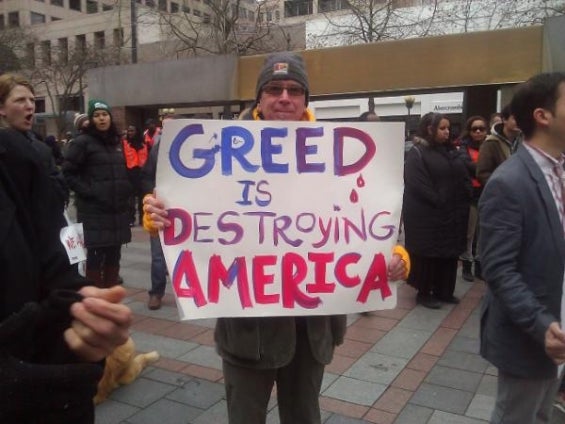Headline News
Banks Mess With Own Workers

The financial sector has rightfully received a lot of criticism from the Teamsters, unions and consumer advocates who noted while banks received billions in bailouts in the wake of the Great Recession, they’ve done little to help those who suffered from Wall Street’s risky dealings. Now it seems those not being helped include some of their own employees.
A report released this month by the Committee for Better Banks shows almost a third of the country’s bank tellers are receiving some form of public assistance. That means the public is doling out almost $900 million a year in assistance to help bank tellers provide the basics for themselves and their families. The news is even worse in New York City, the center of the financial world, where 39 percent of tellers and their family members are receiving some type of public assistance.
“Much has been written about Wall Street’s drive for profits and CEO compensation, securitization, fines and regulation,” the report states. “However, behind the scenes another story exists: bank workers in New York, across the nation and around the globe are being squeezed, very much as other hourly workers in the economy are. Banks’ internal employment practices, just like the external practices, increasingly drive inequality.”
The document notes that while average wages have declined on Wall Street since 2008, the top fifty financial CEO’s compensation soared 26 percent in 2010 and 20.4 percent in 2011. Meanwhile, there are now 19,800 fewer financial sector employees now in New York City than there were before the last recession.
Another new report by the New Day New York Coalition illustrates the lack of benefits that have resulted from handouts to the financial industry in America’s largest metropolis. It states the city and state give bank subsidies worth about $300 million. Meanwhile, New York City and associated entities pay $160 million a year for bad deals with banks. And foreclosures have cost the city $1.9 billion in expenses and lost revenue.
There is no good reason that in an industry flush with cash, some workers need to get help to make ends meet. Yet again, this is a shining example of a system that isn’t profiting hard-working Americans, but is lining the pockets of mega-sized financial institutions. The average teller at Wells Fargo makes less than $11 an hour, for example, while its CEO John Stumpf made $22.9 million in 2012. If that isn’t inequity, it doesn’t exist.
It’s time for banks to pay their fair share.